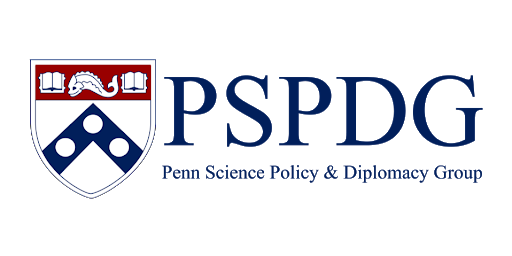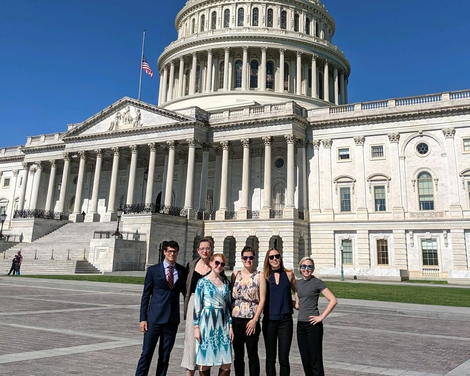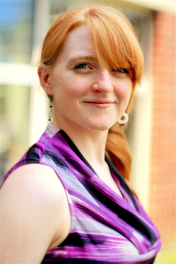|
As the deadline for submissions for the Second International Policy Memo Competition, held by the Journal of Science Policy and Governance (JSPG) and the National Science Policy Network (NSPN), fast approaches we took some time to chat with Erin Reagan and Shannon Wolfman from the Penn Science Policy and Diplomacy Group (PSPDG) from the University of Pennsylvania, on their first-place memo and what they have done since then.
This is a joint blog post between the Journal of Science Policy & Governance & the National Science Policy Network, which also appears on the NSPN blog here.
Q: What was your policy memo about, and what inspired you to write about it?
We became specifically interested in supervised consumption facilities as a topic because we live in Philadelphia, which has been one of the hardest-hit cities in the country by the opioid epidemic. At the time that we were choosing memo topics, Philly was just starting to move forward with opening what would be the first supervised consumption facility in the United States. Almost as soon as these plans were announced, the US Attorney filed a lawsuit to stop the opening, citing the Controlled Substances Act. These developments were a big deal locally, but they were also making national headlines. Other cities around the country were watching Philadelphia to see whether they might be able to open their own such facilities to prevent overdose deaths. Being scientists in the epicenter of the epidemic and the controversy, it seemed like that was the perfect time to be weighing in on that topic.
Q: How did your group assemble and delegate work on the memo?
SW: We got together as a group just after the workshop that we helped present with the Penn Science Policy and Diplomacy Group (PSPDG) on how to write a policy memo. Then we met two or three times over the next couple of weeks to discuss how to proceed. We knew when we formed our group that we wanted to focus on supervised consumption facilities, but we weren’t quite sure who to target with the memo or what exactly to recommend. So our first meeting was spent figuring out what we didn’t know but would need to find out to decide exactly what to suggest to whom.
By chance, a former PSPDG president was running for a city council seat in Philadelphia around the time we were planning our memo-writing workshop and forming memo teams. He had asked me to write him a policy summary on supervised consumption facilities for the campaign. That made writing the memo a lot easier because I had already done a ton of reading about the research on these facilities and produced a summary that the other members of my group could use as a starting point to get up to speed.
We followed this same process of divvying up research topics and then meeting to discuss and make decisions on everything about the memo, from what exactly our policy suggestion would be out of all the possible things we could ask for, to how we should frame our argument given the political climate around supervised consumption facilities. We used the same divide and conquer approach for the actual writing, using google docs so that we could all edit each other and make the document cohesive. It was really amazing to me how something that felt so daunting and impossible became totally manageable with a team and clear division of labor.
Q: What was the most surprising thing your group learned while researching the memo?
SW: It’s hard looking back and trying to remember what we didn’t know, now that we know it! We learned a lot about the research that’s been done on supervised consumption facilities, and it turns out the fears people have about them that seem quite reasonable have actually not been born out by the evidence. For example, people worry that opening a facility where drug users can use drugs without fear of arrest or death would bring more and more people in addiction to the area. But in reality, only people who have insecure housing are likely to use these facilities, and that group of people is unlikely to travel more than a few blocks to use such a facility.
I think that we were also pretty surprised by how much money can be saved by implementing harm reduction policies like supervised consumption facilities. In addition to lives saved, these facilities improve the health of people in addiction by preventing the spread of hepatitis C and HIV and by reducing soft-tissue infections through education about proper injection techniques. These illnesses are huge public health and economic burdens.
Q: What did winning the Policy Memo Competition $1,000 prize enable your Science Policy Group to do?
ER: We planned out an entire academic year’s worth of science policy programming using those funds. In Fall 2019, we hosted a panel discussing Science & Technology Policy Fellowships at the Federal and State levels, which was well-attended by students from programs across the university. We have already hosted a panel discussing the different ways scientists and scientists-in-training can work to get science integrated more deeply into the policymaking process, including running for elected office or serving on a commission, serving as a science policy fellow, or engaging in advocacy work as a full-time scientist.
Q: How did you advocate for your policy memo with Congressional staffers? How did you prepare?
ER: Three of the people from our six person team in DC had not taken part in the researching and composing of the memo, so we all took the time to familiarize ourselves with it ahead of time and met with the authors to ensure we were all on the same page. I scheduled our meetings, using every connection we could, to end up meeting with the offices of Guy Reschenthaler (R-PA 14), Conor Lamb (D-PA 17), Brad Schneider (D-IL 10), Dwight Evans (D-PA 3), Chrissy Houlahan (D-PA 6), Bernie Sanders (I-VT), Elizabeth Warren (D-MA), Bob Casey (D-PA), and Pat Toomey (R-PA).
Q: What tips can you offer to fellow Policy Memo Competition writers?
SW: The biggest advice I have is to just go for it! Honestly, the more people I meet in any field, the more I realize that nobody ever feels like they know what they’re doing. I was recruited to put together a workshop on how to write a policy memo when I had never written one or even thought of writing one before ever. But I learned, and I did my best, and I wrote a memo, and it won! I still don’t feel like I know what I’m doing, but I do know that I’m learning and getting better, and I’ve really come to believe that even if you fail, the trying matters.
Q: What are your plans for continuing the work of your memo?
SW: Well, we have some plans for adapting our memo to the state-level, but things are rapidly evolving in Philadelphia around supervised consumption facilities at the moment. Since writing the memo, a federal judge has ruled that Philadelphia could proceed with opening a supervised consumption facility, and plans were moving forward quite rapidly. This rapidity was met with some severe public backlash, though, so we decided to write an op-ed for our local newspaper advocating for the opening of the facility. Unfortunately, the op-ed rapidly became obsolete due to events on the ground. So, for the moment, we are keeping an eye on progress to see if an opportunity arises for us to be useful in the discussion. If we were writing a memo right now, I think it would probably focus on city council here in Philly instead of the federal government.
Penn Science Policy and Diplomacy Group creates and provides opportunities for students and other science trainees at the University of Pennsylvania to get hands-on training and experience in the fields of science communication, policy, and diplomacy. Visit their website here or follow them on Twitter at @UPennSciencePol.
This is a joint blog post between the Journal of Science Policy & Governance & the National Science Policy Network, which also appears on the NSPN blog here.
Comments are closed.
|
- Home
- About
-
Volumes
- Volume 24 Issue 01
- Sigma Xi and Rita Allen Foundation - Civic Science for Transformative Policy Solutions to Societal Challenges
- Volume 23 Issue 01
- APS Policy and Governance on Science, Technology and Global Security
- IAI Development Policy and Global Change Science to Achieve the Vision of Sustainable Americas
- Volume 22 Issue 01
- GHFUTURES2030 Strengthening Youth-centered Policy and Governance of Digital Transformations in Health.
- UNESCO AND MGCY OPEN SCIENCE POLICIES AS AN ACCELERATOR FOR ACHIEVING THE SUSTAINABLE DEVELOPMENT GOALS
- Volume 21 Issue 01 >
- JSPG and UCL STEAPP Special Topics: Innovations in Science Diplomacy >
- Sigma XI-JSPG Special Issue: Re-envisioning STEM Education and Workforce Development for the 21st Century
- Volume 20 Issue 01
- JSPG Volume 19 Issue 01 (10 Years of Publishing)
- Special Issue: 2021 NSPN-JSPG Policy Memo Competition
- Special Issue: Shaping the Future of Science Policy
- JSPG-UK SIN Special Issue: Climate Change Solutions
- Volume 18 Issue 01
- Special Issue: 2020 NSPN-JSPG Policy Memo Competition
- Volume 17 Issue 01 (Supported by AAAS STPF)
- JSPG-UN MGCY Special Issue: Impacts of Emerging Technologies
- Volume 16 Issue 01
- Volume 15 (Supported by CSPC)
- Special Issue: 2019 NSPN-JSPG Policy Memo Competition
- Volume 14
- Volume 13
- Volume 12
- Volume 11
- Volume 10
- Volume 9
- Volume 8
- Volume 7
- Volume 6
- JSPG-UCS Special Issue: Healthy Food Policy
- Volume 5
- Volume 4
- Special Issue: Hot Topics 2013
- Volume 3
- Volume 2
- Volume 1
- Submit to JSPG
- Announcements
- Events
- Training
- Media Mentions
- Policy in action
- Podcast






